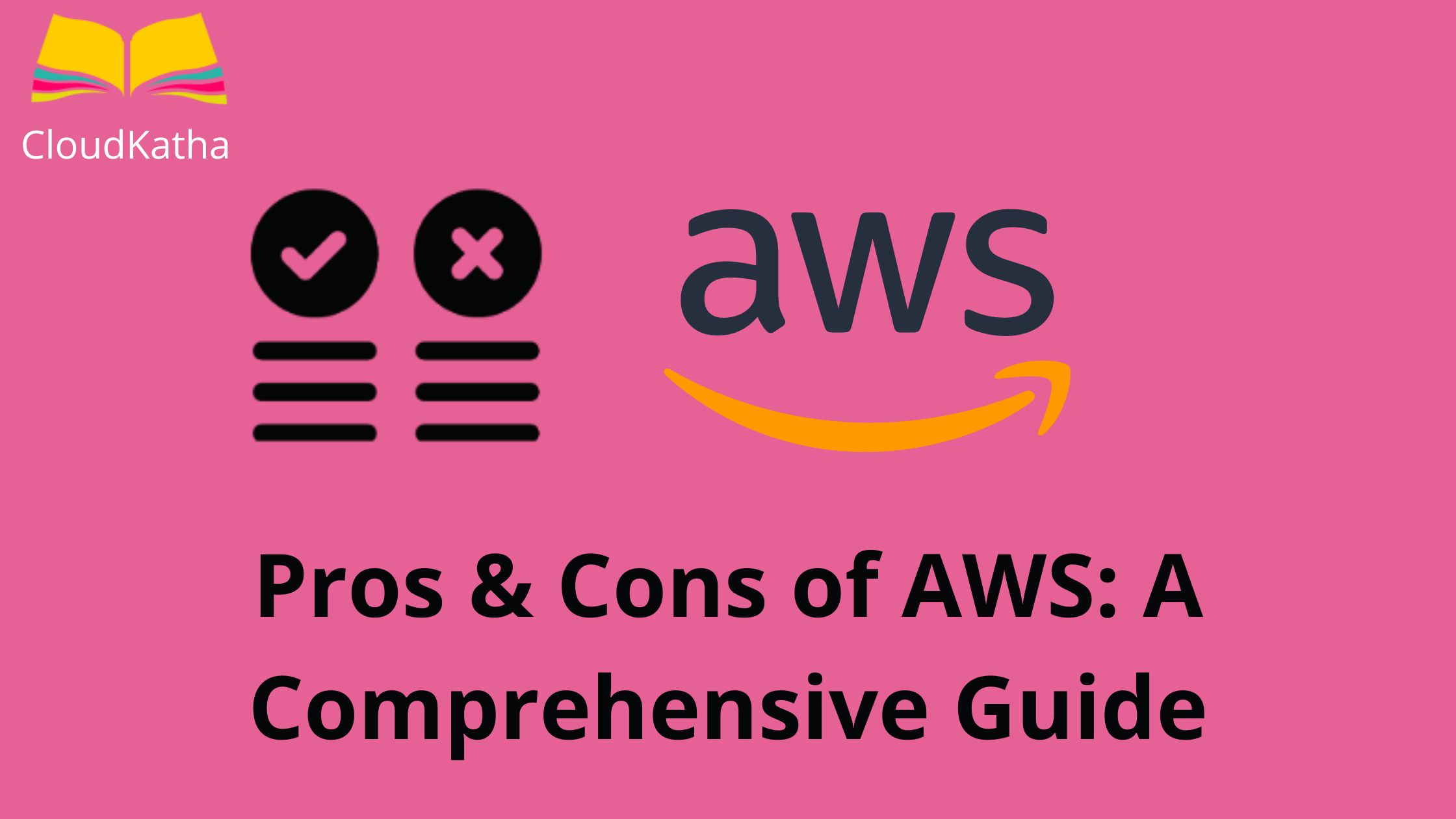Pros & Cons of AWS: A Comprehensive Guide
Amazon Web Services or AWS is the leading cloud services provider. There are pros and cons to utilizing AWS in your organization. What’s more, there are pros and cons of using any cloud service.
This article covers a list of potential benefits and drawbacks of using AWS as an enterprise or small business. It is important that you understand the potential downsides so that you can make an informed decision about whether or not it’s right for your company.
This article details an explanation of how AWS can be used by businesses, why you might not want to use it, what to consider before making a final decision, as well as some examples of businesses that have thrived by utilizing AWS. Check out this helpful information to get started.
What is Amazon Web Services?
AWS is a cloud services platform that provides companies with a breadth of tools to host their applications. it allows businesses to scale their applications up or down based on current demand. Additionally, AWS users are charged based on the amount of computing power they use in each given hour or second in the case of Lambdas.
AWS users also pay for storage and bandwidth that their apps might use. AWS offers a huge variety of services. Most of these services fall into one of two categories: Infrastructure as a Service (IaaS) and Platform as a Service (PaaS). IaaS allows users to buy specific computing resources outright. PaaS gives users tools to build their own applications.
Why you should use AWS
The word “should” here is imperative. AWS is a great option for most businesses. It’s scalable and flexible enough to meet the demands of most organizations. If you’re looking for a quick, cost-effective way to increase the scalability of your company’s infrastructure, AWS is a great choice.
Amazon’s cloud service is extremely user-friendly and requires little to no IT involvement to get started. In fact, if you’re just starting out, you might want to consider AWS. Affordable prices and ease of use of AWS are ideal for small businesses and startups.
Why you might not want to use AWS
You must weigh the potential benefits against the potential pitfalls of using AWS. If your company’s application is highly-sensitive, the fact that AWS is a shared resource could be an issue.
In the event of an outage, your application could be disrupted along with all the other AWS users. Another potential drawback is that you must store your data on AWS servers. If you’re concerned about the privacy and security of your information, this is something to consider. Finally, it’s worth noting that AWS isn’t the right solution for every business out there. If your company requires special software or hardware, it’s likely that AWS won’t be a great fit.
What to consider before deciding on AWS
According to the leading AWS consulting company BecloudIT, before you decide to go all-in on AWS, it’s important to consider a few things. If your application is highly sensitive, you’ll want to make sure that your data is encrypted. You’ll also want to make sure that you have a plan in place for dealing with outages. The bigger your application gets, the more likely it is that you will exceed AWS’s limit. So research a bit about limits on AWS and consider those points before choosing it for your business.
Examples of businesses who benefit from AWS
There are plenty of businesses that are thriving because they’re using AWS. It’s important to remember that not every company’s needs are the same. Some businesses flourish by using AWS. Others thrive by choosing an entirely different path. For example, Amazon itself is powered by AWS. The online retail giant has nearly limitless scalability. Ecommerce companies are often good candidates to use AWS. Many eCommerce businesses sell products that require a significant amount of computing power. AWS is the perfect solution for hosting these types of businesses.
Conclusion
In this post on Pros & Cons of AWS: A Comprehensive Guide, we have seen that Amazon Web Services is a powerful platform that has the potential to increase the scalability of your company’s infrastructure greatly. However, it’s important to consider the potential downsides before deciding if AWS is the right solution for your business. If your application is sensitive, you’ll want to make sure that you encrypt your data. You’ll also want to have a disaster recovery plan in place in the event of an outage. If your application is large or has any special requirement that AWS can’t handle you might want to consider using another hosting provider. It’s important to weigh the potential benefits against the potential pitfalls of using AWS in order to make an informed decision about whether or not it’s right for your company.

